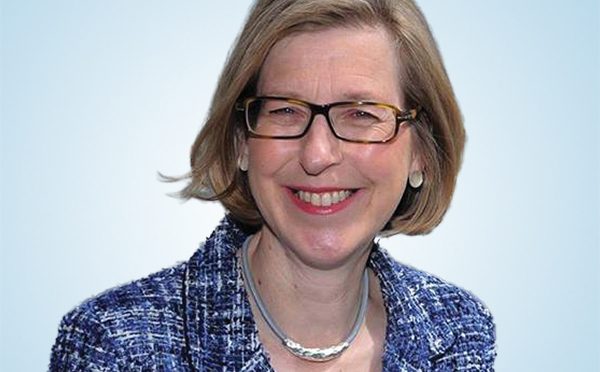It pays us all to go green
There are clear benefits for associations investing in sustainability, says Northwards Housing’s Robin Lawler


Robin Lawler
Climate change is the biggest single challenge faced by mankind. We ignore it at our peril.
It is hard to argue against investment in green technology. Why wouldn’t you want to help save the planet and reduce tenants’ fuel bills? But with ever-increasing constraints on the budgets of housing providers across the country, it would be very easy to allow green thinking to sit on the back-burner, in favour of core housing services. That is not the approach we take at Northwards Housing.
We see clear business benefits in being green. Every green action we take has extra benefits that help our tenants and, in turn, help us to provide a strong, sustainable business model or help reduce our overheads. We have invested heavily in retrofitting the homes we manage - well in excess of the Decent Homes standard. The measures undertaken include A-rated boilers, external insulation, overcladding tower blocks, installing solar panels, ground source heat pumps and other ground-breaking initiatives. But it is also about behaviour change - encouraging tenants and communities to understand how they can save money and reduce their carbon footprint.
In 2015, we were awarded Gold on the SHIFT sustainability index, an accolade we are really proud of. We were awarded the highest score of any SHIFT member in that year’s assessment and it shows that our hard work and commitment is paying off.
Sustainable savings
In our trials, we have continued to install ground source heat pumps, completing installations in three of our cottage flats. This follows the first residential tower block installation in the UK.
We estimate that tenants will pay on average about £3.50 per week for their heating and hot water, compared with a fixed charge previously of £13.74. This equates to an annual cost of about £182 rather than £714.
We are also really proud to join our arm’s-length management organisation colleagues in Bury and Wigan on a partnership between Greater Manchester’s Combined Authority and Japan’s New Energy and Industrial Development Organisation. The project will see a total of 600 homes have their old inefficient heating systems replaced with air source heat pumps. The pumps are connected to a ‘smart grid’ system that can manage the energy produced in people’s homes and help reduce demand on the National Grid, which is currently close to capacity. This uses less energy and can therefore lead to cheaper fuel bills. It is the first time the technology has been used in homes anywhere in the world and we are pleased to be involved in it.
Special equipment is being installed in each home, which is used to monitor and control the heat pumps. This will be used to reduce energy consumption at peak times - thus reducing demand on the National Grid.
It has extra benefits too - as part of the trial, residents are being given a tablet computer that enables them to monitor their energy usage, while giving them free access to the internet. As many housing providers are aware, the need to get tenants skilled up in digital technology is ever more pressing.
Sustainability also helps us engage with our employees and helps them further understand our vision and values. We have a climate change action plan, which is owned and shared across the company. We have been encouraging and promoting sustainable ways to travel to work, including access to discounted rail and tram travel, the Cycle to Work and Green Car schemes, and car sharing. Last year, we developed an innovative week of action around green transport and encouraged staff to leave their cars at home and log their miles in order to be entered into a prize draw. We have calculated that this special week saved almost 400 miles of car travel.
Eco-learning
I have personally led the Carbon Literacy programme for housing associations initiative - whereby 20 social landlords across Greater Manchester have developed a shared carbon literacy programme and committed to train all their staff (about 2,000 in all).
We are delighted that our employees have been supportive of the work we are doing to make homes greener and warmer. That is one of the reasons why we organised our Going Greener training, as part of this shared commitment to ensure that all staff are carbon literate. Every single employee and all our board members have been through a rigorous training programme, with a half-day e-learning course focusing on the science behind climate change, followed up with a half-day practical session looking at the steps we can take to tackle it at home and at work.
Staff have pledged to cut their carbon footprint by actions such as eating less cheese, office meat-free days or even replacing old and clapped out appliances with newer, more efficient models. By doing these actions, our employees will have saved more than 77 tonnes of carbon this year.
Of course, we understand that not all employees are specialist. That is why we have Naila Ilyas, our dedicated energy advisor. Her position is fully funded by energy income from our renewable energy schemes.
Last year we secured £5,000 funding from the Department of Energy and Climate Change’s Big Energy Saving Network to help deliver outreach energy advice for tenants and energy awareness sessions for frontline staff.
Naila visits tenants in their homes, giving them vital advice on where they can cut down on their energy usage. With more and more of our tenants struggling to make the tough choice between heating and eating, Naila’s efforts have never been so crucial. The difference this kind of face-to-face contact can make is considerable. To date, Northwards Housing has engaged with 600 individuals, saving them £78,000 in total through
behavioural change advice, grants and helping them to switch providers.
Cutting energy bills for tenants who are struggling makes good business sense - freeing up vital funds to help tenants pay their rent. In order to tackle food and fuel poverty together, we continue to provide energy advice at a local foodbank, and the support is well used.
As the devolution agenda in Greater Manchester gathers pace, it is going to be more efficient to work with other housing providers in the area. That work is already underway with the Low Carbon Hub - a commission of the Greater Manchester Combined Authority set up to tackle climate change across our region.
Above all, though, we need to look to the future. The world will be a very different place in 10 or 15 years and we owe it to our tenants to be ready for that. We need to be on the right side of history.
Robin Lawler, chief executive, Northwards Housing
This opinion piece was written independently, but first appeared in a chapter sponsored by Sustainable Homes









